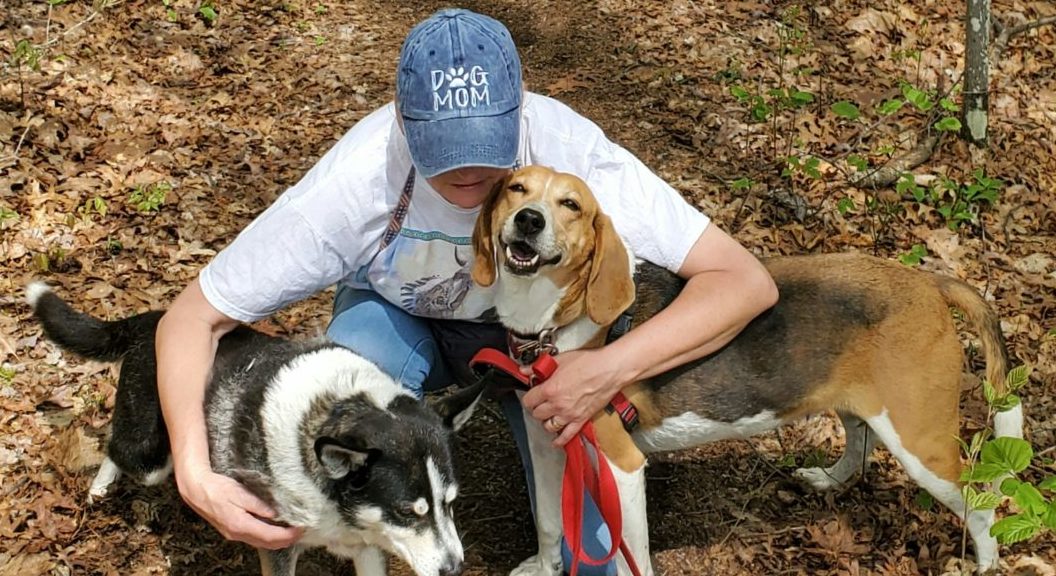This post first appeared on Care2.com
 Photo credit: Thinkstock
Photo credit: Thinkstock
Like so many shelter dogs, Alaska didn’t show well when visitors walked past her run at Pets Alive Animal Sanctuary in Middletown, NY. So when a volunteer returned the shepherd mix after a sleepover at her house, staff were thrilled to hear that everything went really well.
SHORT-TERM FOSTERING (AKA SLEEPOVERS FOR DOGS)
“She was an entirely different dog in a home environment,” said Robin Markovits, a certified dog trainer who works at the sanctuary. “She was calm and relaxed, and the volunteer brought back a wealth of information for us to share with potential adopters.”
Pets Alive pipes calming music into kennels to help dogs relax, and staff and volunteers work hard on in-kennel enrichment programs. Still, Markovits said there’s no substitute for giving the dogs a break from the shelter environment via short-term fostering.
“No matter how much enrichment you provide there’s always going to be a certain amount of stress in a shelter,” Markovits said. “Dogs need to get away from this environment and do what dogs are supposed to do—sniff and smell, bond with people and have fun.”
Pets Alive encourages volunteers to take dogs out for a hike and keep them for overnight or weekend sleepovers. Some volunteers who can’t foster the dogs in their own homes opt to spend an overnight with them at a local pet-friendly hotel.
THERE’S SCIENTIFIC PROOF SHELTER DOGS BENEFIT FROM SLEEPOVERS.
Pets Alive is not the only shelter to see the benefits of short-term fostering or overnight sleepovers. A little over a year ago, Maddie’s Fund gave a grant to Carroll College, MT to test the theory that shelter dogs benefit from sleepovers.
This year the study was expanded to Arizona State’s Science Collaboratory working with dogs at four U.S. shelters.
According to Maddie’s Fund, there was initial disagreement within the animal sheltering community about the effect of short-term fostering on the dogs. Some loved the idea of providing dogs with a break from the shelter while others felt these brief sleepovers would cause more stress to the dogs, especially when returned to the shelter.
Markovits said she likens overnight or weekend sleepovers for shelter dogs to how humans feel after a weekend getaway.
“Think about how refreshed and calm you feel even after a short getaway?” the trainer said. “That same sense of calm and relaxation is what we see in all of our shelter dogs who get away for overnight or weekend sleepovers.”

Alaska, enjoyed a sleepover at a volunteer’s house when she was living at Pets Alive Animal Sanctuary in Middletown, NY.
The objective of the Maddie’s Fund study was to understand how overnight or short-term sleepovers with a foster caregiver affected shelter dogs’ cortisol levels, which can be an indicator of stress.
The researchers also wanted to see how behavioral observations in foster care relate to what adopters see immediately upon adoption and six months after the pets have settled into their new homes.
“To measure the dogs’ cortisol levels in the pilot study, we collected urine from the dogs the morning before the sleepover, the morning before being returned, and the next morning back at the shelter.” Lisa Gunter, a doctoral candidate at Arizona State University, explained. “For the behavioral component, we used questions from James Serpell’s C-BARQ questionnaire, a validated dog research questionnaire that asks owners to describe the dog’s behavior in a variety of everyday situations. We collected these questionnaires from shelter staff, the foster home and the new adopters.”
4 WAYS SHORT-TERM FOSTERING BENEFITS SHELTER DOGS
Study results showed dogs do indeed benefit from sleepovers. Here’s how.
1. Dogs were able to relax.
The dogs’ cortisol levels significantly dropped with just one overnight in a foster home.
Families in the study reported that the dogs would often sleep once they settled into their foster home. While the dogs’ cortisol levels did go back to previous levels when returned to the shelter they didn’t go any higher than that.
2. Volunteers became advocates.
Volunteers who took dogs on sleepovers became advocates for their foster dogs. They took the dogs to social events and promoted the dog on social media while they were fostering.
3. Feedback helped overcome myths about shelter dogs.
The perception of shelter dogs as being “unknown” often prevents them from finding new homes.
Overnight and short-term sleepovers help to combat this stigma as volunteers share information on the dog’s temperament and behavior in a home environment.
4. The human-animal bond extended past the sleepover.
Volunteers who took dogs on sleepovers didn’t forget about the dog once he or she was back at the shelter.
Many volunteers in the study continued to actively work on behalf of “their” dog, checking on his or her adoption status, continuing to share the dog on social media, taking the dog to adoption events, and, in several cases, even continuing to foster the dog after the research component was over.
Pets Alive is always looking for new volunteers including people who are willing to take dogs on overnight or weekend sleepovers.
A Maddie’s Fund manual on Short-Term Foster Care provides more information on why sleepovers are good for shelter dogs while also providing a great volunteer opportunity for people who can’t commit to long hours of volunteer work at a shelter.
